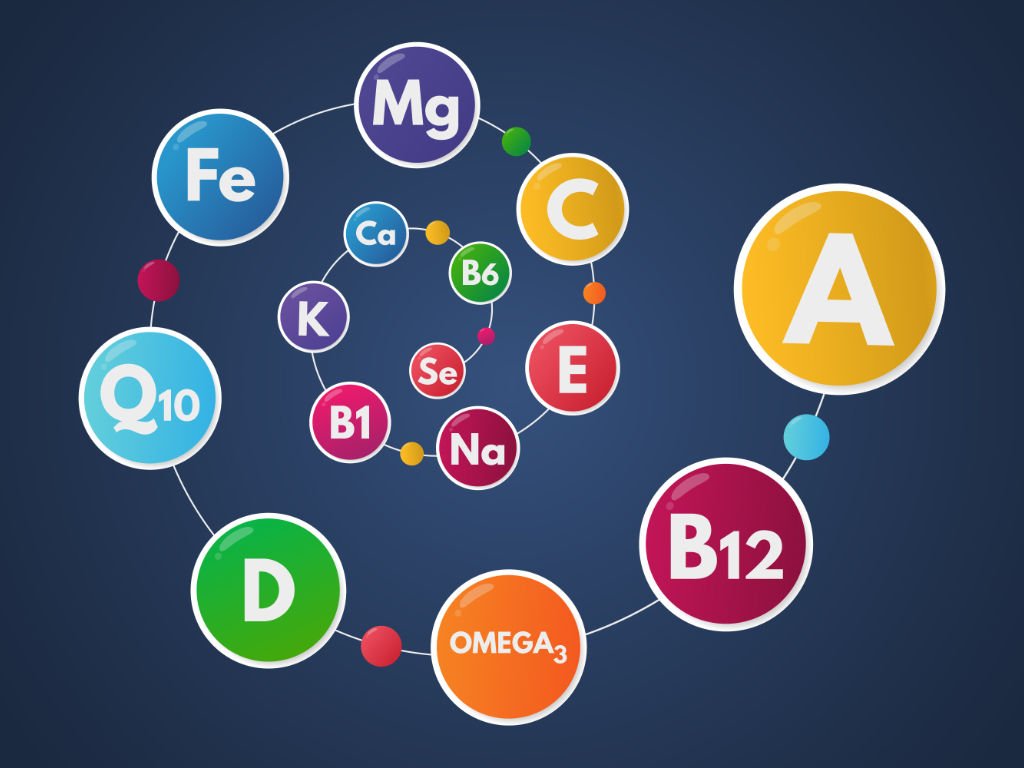Table of Contents
Have you ever stood in the vitamin aisle, completely overwhelmed by the sheer number of multivitamin options staring back at you? You’re definitely not alone. With shelves packed full of colorful bottles promising everything from increased energy to better immunity, choosing the right multivitamin can feel like navigating a maze blindfolded.
Multivitamins have become one of the most popular dietary supplements worldwide, with millions of adults incorporating them into their daily routines. But here’s the thing – not all multivitamins are created equal, and understanding what makes a good one can be the difference between wasting your money and actually supporting your health goals.
In this comprehensive guide, we’ll dive deep into everything you need to know about multivitamins, from their basic composition to choosing the perfect formula for your lifestyle. Whether you’re a busy professional looking to fill nutritional gaps or someone seeking immune support, we’ve got you covered.
What Are Multivitamins?
At their core, multivitamins are dietary supplements that combine multiple essential vitamins and minerals into a single, convenient dose. Think of them as your nutritional safety net – they’re designed to help bridge the gap between what you eat and what your body actually needs to function optimally.
These supplements typically contain a blend of fat-soluble vitamins (A, D, E, and K) and water-soluble vitamins (the B-complex family and vitamin C), along with essential minerals like calcium, magnesium, zinc, iron, and selenium. The specific combination and amounts can vary dramatically between brands and formulations.
Different Forms of Multivitamins
The beauty of modern multivitamins lies in their variety. You’ll find them in several forms, each with its own advantages:
Tablets remain the most traditional and cost-effective option. They’re typically the most concentrated, allowing manufacturers to pack more nutrients into each dose. However, some people find them harder to swallow or digest.
Capsules offer better absorption for many people since they dissolve more quickly in your stomach. They’re also easier to swallow than large tablets and often contain fewer binders and fillers.
Gummies have exploded in popularity, especially among those who struggle with pills. They taste great and are easy to take, but they often contain added sugars and may have lower concentrations of certain nutrients due to space limitations.
Powders provide the ultimate flexibility – you can mix them into smoothies, water, or juice. They’re perfect for people with swallowing difficulties and often have fewer additives than other forms.
Liquid multivitamins offer rapid absorption and are ideal for children or adults with digestive issues, though they can be less convenient for travel and may have shorter shelf lives.

Understanding Multivitamin Health Benefits
Let’s be honest – the research on multivitamins is mixed, and that’s okay. What’s important is understanding what they can and can’t do for your health. The National Institutes of Health provides extensive research on this topic, helping us separate fact from marketing hype.
Filling Nutritional Gaps
The primary benefit of multivitamins isn’t necessarily preventing disease – it’s ensuring your body has access to essential nutrients that might be missing from your diet. Even with the best intentions, most of us don’t eat perfectly every single day. Work stress, travel, food preferences, and budget constraints all play a role in our nutritional intake.
According to research, certain populations are at higher risk for specific nutrient deficiencies. Vegetarians and vegans might struggle with vitamin B12, iron, and omega-3 fatty acids. People living in northern climates often have insufficient vitamin D levels. Pregnant women need extra folate and iron. Older adults may have difficulty absorbing certain vitamins from food alone.
Supporting Overall Wellness
While multivitamins aren’t magic pills, some studies suggest they may contribute to overall health and well-being. Multivitamin health benefits often show up as subtle improvements in energy levels, mood stability, and general vitality – though these effects can be hard to measure scientifically.
The key is managing expectations. If you’re already eating a balanced diet rich in fruits, vegetables, whole grains, and lean proteins, a multivitamin might provide only marginal additional benefits. However, if your diet is less than perfect (and whose isn’t sometimes?), a quality multivitamin can serve as valuable insurance.
Age and Gender-Specific Benefits
Multivitamins for adults often come in formulations tailored to specific demographics, and there’s good reason for this approach. Men and women have different nutritional needs, particularly when it comes to iron. Pre-menopausal women typically need more iron due to menstrual losses, while men and post-menopausal women need less and can actually be harmed by excess iron intake.
Older adults face unique challenges. As we age, our bodies become less efficient at absorbing certain nutrients, particularly vitamin B12, vitamin D, and calcium. Additionally, many medications commonly prescribed to older adults can interfere with nutrient absorption or increase nutrient needs.
Pregnant and breastfeeding women have dramatically increased needs for folate, iron, calcium, and other nutrients. While prenatal vitamins are specifically formulated for this population, it’s worth noting that general multivitamins aren’t suitable substitutes for proper prenatal nutrition.
Daily Uses and Integration of Multivitamins
Incorporating multivitamins into your daily routine doesn’t have to be complicated, but there are some best practices that can help you get the most benefit from your supplement.
Timing and Consistency
The most important factor isn’t necessarily when you take your multivitamin, but that you take it consistently. Some people prefer morning doses to potentially boost energy levels throughout the day, while others find evening doses work better for their schedules. Fat-soluble vitamins (A, D, E, and K) are better absorbed when taken with food containing some fat, so taking your multivitamin with breakfast or lunch is often ideal.
Consistency matters more than perfection. Taking a multivitamin sporadically won’t provide the steady nutrient support your body needs. Think of it like watering a plant – irregular, heavy doses aren’t as effective as consistent, moderate amounts.
Situational Benefits
There are certain times when multivitamin supplementation becomes even more valuable. During periods of high stress, your body’s demand for certain nutrients, particularly B vitamins and vitamin C, can increase significantly. If you’re recovering from illness, dealing with poor appetite, or facing major life changes, a multivitamin can help ensure your nutritional foundation remains solid.
Travelers often find multivitamins helpful when their usual diet gets disrupted. Similarly, people going through dietary changes – whether for health reasons, ethical choices, or weight management – might benefit from the nutritional safety net a good multivitamin provides.
Students during exam periods, new parents dealing with sleep deprivation, and anyone facing periods of intense physical or emotional demands might find that consistent multivitamin use helps maintain their energy and resilience.
How to Choose the Best Multivitamin for Adults
Walking down the supplement aisle can feel overwhelming, but understanding what to look for can help you make an informed choice. The WebMD guide to choosing multivitamins offers excellent practical advice for consumers.

Understanding Your Individual Needs
The best multivitamin for you depends on several factors: your age, gender, diet, lifestyle, health status, and specific goals. A 25-year-old vegetarian woman has very different nutritional needs than a 55-year-old male executive or a 70-year-old retiree.
Start by honestly assessing your diet. Do you eat at least five servings of fruits and vegetables daily? Do you consume dairy products or fortified plant-based alternatives? How often do you eat fish, lean meat, or other protein sources? Are you getting adequate whole grains and healthy fats? Your answers will help identify potential nutritional gaps.
Consider your lifestyle factors too. Do you spend time outdoors, or do you work in an office with limited sun exposure? Are you physically active, or do you lead a more sedentary lifestyle? Do you drink alcohol regularly? Are you under chronic stress? All of these factors influence your nutritional needs.
Key Ingredients to Prioritize
When evaluating multivitamins, certain nutrients deserve special attention:
Vitamin D has become increasingly recognized as crucial for bone health, immune function, and overall wellness. Many people, especially those in northern climates or with limited sun exposure, have insufficient vitamin D levels. Look for multivitamins containing 1000-2000 IU of vitamin D3 (cholecalciferol), which is more effective than D2.
Vitamin B12 is essential for energy metabolism, nervous system function, and red blood cell formation. This is particularly important for vegetarians, vegans, and older adults who may have difficulty absorbing B12 from food sources. Look for methylcobalamin or cyanocobalamin forms.
Folate supports cellular health and is crucial for DNA synthesis. Pregnant women or those planning pregnancy need adequate folate to prevent neural tube defects. Look for methylfolate rather than synthetic folic acid when possible, as it’s more bioavailable for people with certain genetic variations.
Iron needs vary dramatically by individual. Pre-menopausal women typically need iron-containing multivitamins, while men and post-menopausal women should usually choose iron-free formulations unless specifically advised otherwise by their healthcare provider.
Calcium and Magnesium work together to support bone health, muscle function, and cardiovascular health. However, multivitamins can’t contain meaningful amounts of calcium due to size limitations, so people at risk for calcium deficiency may need separate supplementation.
Quality Indicators to Look For
Not all supplements are created equal, and the supplement industry has less regulation than pharmaceuticals. Here’s what to look for:
Third-party testing is one of the most important quality indicators. Look for seals from organizations like NSF International, USP (U.S. Pharmacopeial Convention), or ConsumerLab. These organizations test products to verify they contain what the label claims and are free from harmful contaminants.
Reputable brands with good track records and transparent manufacturing practices are generally safer bets than unknown companies making unrealistic claims. Companies that have been around for years and have good relationships with healthcare providers tend to produce more reliable products.
Clear, detailed labeling should list specific amounts of each nutrient, not just percentages of daily values. Be wary of proprietary blends that don’t disclose individual ingredient amounts, and avoid products making outrageous health claims or promising unrealistic results.
Multivitamins for Immune Support
The relationship between multivitamins and immune function is complex and often misunderstood. While supplements can support immune health, they’re not magic bullets that prevent all illness.
Key Immune-Supporting Nutrients
Several nutrients found in multivitamins play important roles in immune function:
Vitamin C is perhaps the most famous immune-supporting nutrient. It’s involved in various aspects of immune function and helps protect cells from oxidative stress. However, mega-doses aren’t necessarily better – your body can only use so much vitamin C at one time.
Vitamin D has emerged as a crucial player in immune regulation. Adequate vitamin D levels support both innate and adaptive immunity, and deficiency has been linked to increased susceptibility to respiratory infections.
Zinc is essential for immune cell development and communication. Even mild zinc deficiency can impair immune function, but too much zinc can actually suppress immunity, so balance is key.
Vitamin A supports the integrity of mucous membranes – your body’s first line of defense against pathogens. It also plays roles in the development and differentiation of immune cells.
Selenium acts as an antioxidant and supports immune cell function.

Realistic Expectations
While multivitamins for immune support can play a role in maintaining immune health, they work best as part of a comprehensive approach that includes adequate sleep, regular exercise, stress management, good hygiene, and a balanced diet rich in immune-supporting foods.
According to researchers at the National Institutes of Health, the evidence for multivitamins preventing infections in healthy adults is limited. However, for people with nutrient deficiencies or compromised immune systems, appropriate supplementation can be beneficial.
The key is understanding that immune support is about optimization, not disease prevention. A good multivitamin helps ensure your immune system has the nutrients it needs to function properly, but it can’t compensate for poor lifestyle habits or replace other preventive measures.
Understanding Multivitamin Dosage and Safety
One of the biggest misconceptions about vitamins is that more is always better. In reality, multivitamin dosage requires a delicate balance, and excessive intake can sometimes be harmful.
Following Recommended Guidelines
Most multivitamins are formulated to provide nutrients at levels close to the Recommended Daily Allowance (RDA) or Adequate Intake (AI) levels established by health authorities. These amounts are designed to meet the needs of most healthy adults while staying well below potentially harmful levels.
However, individual needs can vary significantly. Factors like age, gender, pregnancy status, medical conditions, medications, and dietary patterns all influence how much of each nutrient you need and can safely consume.
Understanding Potential Risks
While multivitamins are generally safe for most people when used as directed, there are some important safety considerations:
Fat-soluble vitamins (A, D, E, and K) can accumulate in your body tissues, potentially reaching toxic levels if consumed in excess over time. This is particularly concerning with vitamin A, where chronic overconsumption can cause liver damage, bone problems, and birth defects.
Iron toxicity is a serious concern, especially for children. Even adult-dose iron supplements can be dangerous for small children, so multivitamins containing iron should be stored safely out of reach.
Drug interactions can occur with certain vitamins and minerals. For example, vitamin K can interfere with blood-thinning medications, calcium can reduce the absorption of certain antibiotics, and vitamin E might increase bleeding risk in people taking anticoagulant medications.
Pre-existing health conditions may require special considerations. People with kidney disease might need to limit certain vitamins and minerals, while those with hemochromatosis (iron overload disorder) should avoid iron-containing supplements.
When to Consult Healthcare Providers
The detailed safety information provided by medical resources emphasizes the importance of professional guidance in certain situations:
Before starting any multivitamin regimen, it’s wise to discuss your plans with a healthcare provider, especially if you have chronic health conditions, take medications, are pregnant or breastfeeding, or have had previous adverse reactions to supplements.
If you’re considering taking multiple supplements in addition to a multivitamin, professional guidance becomes even more important to avoid potentially dangerous nutrient interactions or excessive intake levels.
Regular monitoring might be appropriate for people taking high-dose supplements or those with conditions that affect nutrient absorption or metabolism. Blood tests can help ensure nutrient levels remain in optimal ranges.
Frequently Asked Questions About Multivitamins
Do multivitamins actually work?
The effectiveness of multivitamins depends on your individual circumstances and what you mean by “work.” If you have a balanced, nutrient-rich diet, a multivitamin might provide minimal additional benefits. However, if your diet has gaps or you have increased nutrient needs due to age, pregnancy, or health conditions, a multivitamin can be helpful. According to comprehensive research reviews, multivitamins are most beneficial for people with specific nutrient deficiencies or those unable to meet their nutritional needs through food alone.
When is the best time to take multivitamins?
Most experts recommend taking multivitamins with food to improve absorption and reduce the risk of stomach upset. Fat-soluble vitamins (A, D, E, K) are particularly better absorbed when taken with meals containing some fat. The specific time of day matters less than consistency – choose a time you can stick with daily, whether it’s with breakfast, lunch, or dinner.
Can I take multivitamins if I’m already eating a healthy diet?
Yes, but the benefits might be more limited. A well-balanced diet rich in fruits, vegetables, whole grains, lean proteins, and healthy fats provides most nutrients your body needs. However, even healthy eaters might have gaps in certain nutrients like vitamin D (especially in winter months), vitamin B12 (for vegetarians), or iron (for some women). A basic multivitamin can serve as nutritional insurance.
Are expensive multivitamins better than cheaper ones?
Not necessarily. Price doesn’t always correlate with quality or effectiveness. Some expensive products pay for fancy marketing, packaging, or celebrity endorsements rather than superior ingredients. Focus on third-party testing, clear labeling, appropriate nutrient forms and doses, and reputable manufacturers rather than price alone. Sometimes, generic or store-brand multivitamins offer the same quality at a fraction of the cost.
Can multivitamins replace a healthy diet?
Absolutely not. Multivitamins are supplements, not substitutes for a balanced diet. Whole foods provide not only vitamins and minerals but also fiber, phytonutrients, antioxidants, and other beneficial compounds that can’t be replicated in pill form. The synergistic effects of nutrients working together in food are complex and important for optimal health.
How long does it take to see benefits from multivitamins?
This varies greatly depending on your starting nutritional status and what benefits you’re expecting. If you’re correcting a deficiency, you might notice improvements in energy or well-being within a few weeks to a few months. However, many benefits of adequate nutrition are long-term and might not be immediately noticeable. Don’t expect dramatic changes overnight – think of multivitamins as long-term health support rather than quick fixes.
Making Multivitamins Part of Your Wellness Journey
Incorporating multivitamins into your health routine is just one piece of the wellness puzzle. Think of them as a foundation that supports your other healthy habits rather than a magic solution that compensates for poor lifestyle choices.
The most effective approach combines appropriate supplementation with a balanced diet rich in superfoods for immunity, regular physical activity, adequate sleep, stress management, and preventive healthcare. If you’re interested in optimizing your nutrition further, exploring probiotic-rich foods for gut health can complement your multivitamin regimen beautifully.
For those focusing on specific health goals, you might also want to learn about natural appetite suppressants or explore antioxidant-rich foods to enhance your overall wellness strategy.
Remember, the journey to optimal health is highly individual. What works perfectly for your friend or colleague might not be the best approach for you. Pay attention to how your body responds to different supplements and dietary changes, and don’t hesitate to adjust your approach as needed.
Consider keeping a simple health journal to track how you feel, your energy levels, sleep quality, and overall well-being as you incorporate multivitamins into your routine. This can help you identify patterns and determine whether your chosen supplement is truly beneficial for you.
The Bottom Line on Multivitamins
Multivitamins can be valuable tools for supporting health and filling nutritional gaps, but they’re not magic pills that guarantee perfect health. The key to successful supplementation lies in choosing quality products appropriate for your individual needs, using them consistently as part of a healthy lifestyle, and maintaining realistic expectations about their benefits.
Quality matters more than quantity when it comes to vitamins and minerals. A well-formulated multivitamin from a reputable manufacturer, taken consistently over time, is more valuable than expensive, high-dose supplements used sporadically.
The most important takeaway? Multivitamins supplement – they don’t replace – a healthy diet and lifestyle. Use them as part of a comprehensive approach to wellness that includes proper nutrition, regular exercise, adequate sleep, stress management, and preventive healthcare.
Whether you’re just starting your wellness journey or looking to optimize an already healthy lifestyle, the right multivitamin can serve as valuable nutritional insurance. Take the time to assess your individual needs, choose quality products, and consider professional guidance when needed. Your future self will thank you for the investment in your long-term health and vitality.
The world of multivitamins doesn’t have to be overwhelming. Armed with the right information and a clear understanding of your personal health goals, you can make confident choices that support your wellness journey for years to come.


